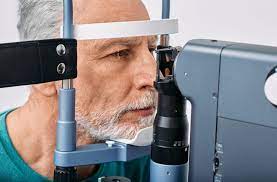Receiving a glaucoma diagnosis may lead to questions about your health and future. Glaucoma is a group of eye conditions that damage the optic nerve, which is necessary for good vision. This damage is caused by abnormally high pressure in your eye. Here are some questions to ask that will help you gather information and understand what comes next:
How Does Glaucoma Affect Me?
Glaucoma typically begins by affecting peripheral vision. You may not notice these early signs, and they may go unnoticed until they become more apparent. As the condition progresses without treatment, the field of vision narrows, and you may start to experience what is known as tunnel vision.
The condition affects each person differently, and the rate of vision loss varies. Some individuals experience a slow progression over many years. Others may have a more rapid decline, which makes regular monitoring by a healthcare provider a standard part of managing the condition.
What Are My Treatment Options?
When you are diagnosed with glaucoma, your doctor will typically discuss a management plan adjusted to your needs. Prescription eye drops are a standard initial treatment. These medications work by lowering the pressure in your eye, and there are several different types that achieve this through various mechanisms.
Oral medications can be an alternative when eye drops alone are not sufficient. Your doctor might prescribe pills to be taken daily. Because these medications circulate throughout your body, they may have more widespread side effects than eye drops.
Laser therapy offers a different method for reducing eye conditions. One procedure uses a laser to improve the drainage of fluid from the eye. This outpatient procedure is often quick, but its effects may wear off over time. Discussing the available treatments with your ophthalmologist will help determine the most suitable path for you.
Will I Need Surgery?
Minimally invasive surgery is generally reserved for cases where medication and laser treatments have not effectively lowered eye pressure. Several types of surgical procedures are available to create a new drainage tube for the fluid in your eye. There is also trabecular surgery, which involves a mesh. Your doctor will decide whether surgery is suitable, and they can advise you accordingly.
What Should I Do Daily?
Managing glaucoma involves incorporating specific habits into your daily routine. You are responsible for following your prescribed medication schedule and making sure you take it regularly. You also need to attend all scheduled follow-up appointments so your doctor can monitor your eye pressure and vision. A few general lifestyle adjustments can support your overall eye health:
- Wear protective eyewear during sports or certain home improvement projects.
- Eat a balanced diet rich in leafy greens and colorful vegetables.
- Engage in moderate exercise as approved by your physician.
Get Treated for Glaucoma
A glaucoma diagnosis marks the beginning of a long-term management plan for your eye health. While there is no cure for glaucoma, various treatments are available to help manage the condition and slow its progression. Taking an active role in your care and maintaining open communication with your eye doctor are key parts of the process. If you have been diagnosed with glaucoma, schedule an appointment with a qualified ophthalmologist to discuss your diagnosis and create a personalized treatment plan.
